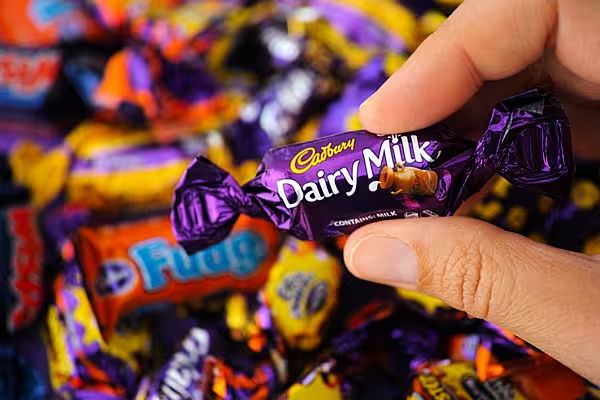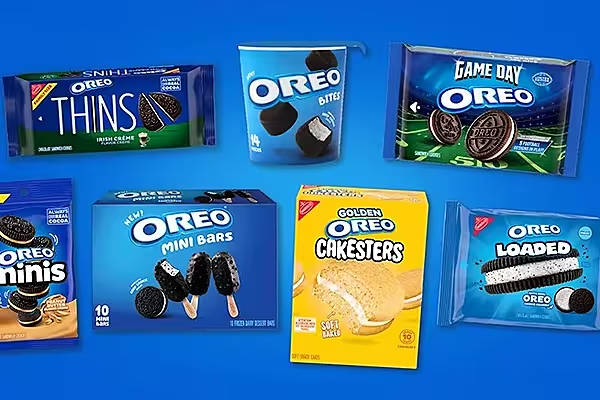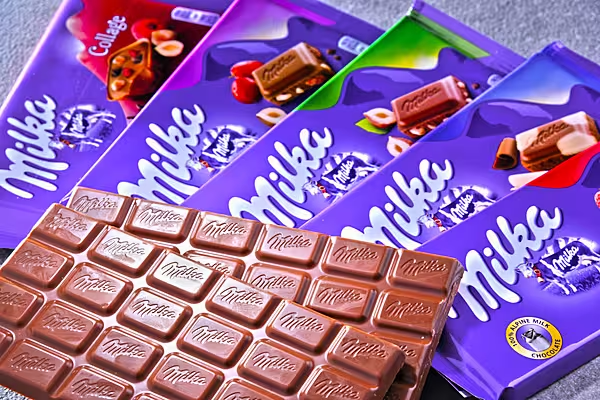Hershey Co. snubbed a preliminary takeover offer from Mondelez International Inc. for $107 a share in cash and stock, turning down a deal that would have created the world’s largest candy company.
The offer, which would have valued the company at about $23 billion, was rejected unanimously, according to a statement Thursday. Hershey’s stock pared earlier gains after the company released the remarks, though the shares still closed at an all-time high -- a sign investors are still holding out hope for a deal. Hershey rose 21 percent to $117.79 in New York.
“The company’s board of directors, after receiving input from the company’s management and its outside financial and legal advisers, carefully evaluated the indication of interest,” Hershey said in the statement. In rejecting the bid, the board “determined that it provided no basis for further discussion between Mondelez and the company.”
The Hershey Trust, which supports the Milton Hershey School and other endeavors, controls about 81 percent of the company’s voting shares. That makes a takeover of Hershey an uphill battle, said RBC Capital Markets analyst David Palmer.
‘Highly Political’
“The sale of Hershey will continue to be a highly political matter and extremely unlikely, in our view,” he said in an e-mail.
The move deals a blow to Mondelez Chief Executive Officer Irene Rosenfeld, who is seeking to balance out the Oreo maker’s overseas-focused business. Hershey generated almost 90 percent of its revenue in North America last year, with the majority of that coming from selling chocolate in the U.S. The combination also would have vaulted Mondelez past Mars Inc. as the world’s biggest confectioner, according to Euromonitor International.
“From a geographic perspective, the move makes sense,” said Jack Skelly, an analyst at Euromonitor. “Mondelez has achieved its position as the second-largest confectionery manufacturer in the world without any sizable presence in the U.S.”
Mondelez didn’t immediately respond to a request for comment.
Keeping Jobs
The company had pledged to maintain jobs and move the combined entity’s headquarters to Hershey’s hometown, according to the Wall Street Journal. The new business also would have taken the Hershey name, the newspaper said. Hershey didn’t get into those details in its statement, but said the transaction involved “non-monetary considerations.” It also said the board and management “are committed to enhancing value for all stockholders in accordance with the company’s strategic plan.”
The two companies have been talking in recent months, without reaching an agreement, a person familiar with the situation told Bloomberg News.
The pace of food-industry deals has slowed in 2016 following a bumper crop last year, when transactions valued at more than $158 billion announced, according to data compiled by Bloomberg. The largest of those was H.J. Heinz’s $55 billion combination with Kraft Foods Group Inc.
Mondelez, which split from Kraft Foods in 2012, was set up to focus on faster-growing emerging markets. The global slowdown hurt the company in recent years and made the U.S. market look more attractive. It also may have been a defensive move to prevent Mondelez itself from becoming a takeover target.
“While we view the chances of a Hershey-Mondelez combination as remote, we can understand Mondelez’s desire to do a deal,” Palmer said. The Hershey brand has wide recognition, he said.
But Hershey faces its own challenges. It’s suffering from a cutback in sugar consumption by Americans, prompting it to push deeper into foods like beef jerky. The company’s troubles have made it more of a takeover target, analysts say. The question is whether the family trust would ever go along with a buyout.
The trust has long been seen as an impediment to sealing a deal.
“A hostile bid cannot succeed,” Pablo Zuanic, an analyst at Susquehanna International Group, said in a note.
News by Bloomberg, edited by ESM. To subscribe to ESM: The European Supermarket Magazine, click here.













